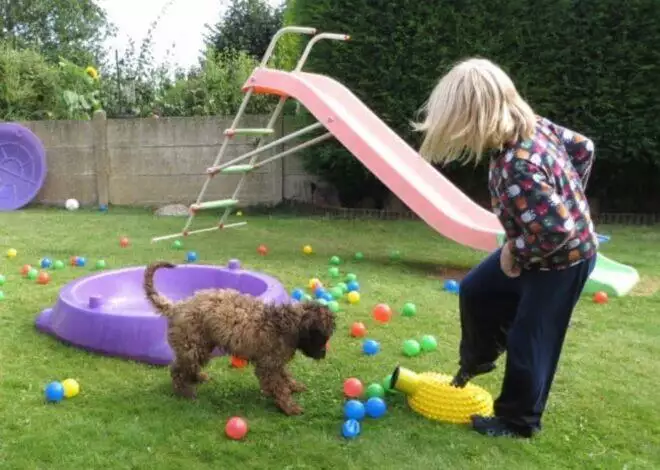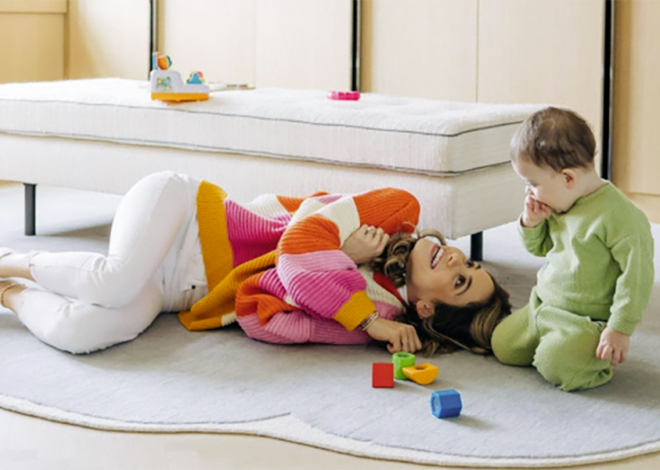Last year during a family dinner with my (Robin’s) niece and nephew and their two adorable daughters, five-year-old Sofia asked me to read with her A Little SPOT of Worry by Diane Alber. In this book, Alber explains that there are two distinct types of worry: a useful worry, or one that keeps you safe, and a spinning worry, or one that you imagine, is not likely to happen and can keep you from fully enjoying your life.
Sofia was completely engaged as she explained, in detail, the example of the spinning worry about riding a bike. Then Sofia told me about her own spinning worries, such as being afraid to jump up in the air when she was little because she imagined that she was going to fall and get hurt. Only after Sofia’s mother showed her ways to land softly and safely did she slow her spinning worry.
Of course, I quickly realized this book wasn’t just written for children; it was written for me—and other parents, too.
Say your child is learning to rollerblade. In this scenario, a useful worry tells you that it is important for them to understand the importance of taking safety precautions. So, you buy them a helmet and explain how the helmet will offer protection. The thrill of rollerblading can now begin with assured excitement. Useful worrying allows a parent to recognize risks in an activity and signals them to take precautions.
A spinning worry, though, takes these risks and runs with them, multiplying a parent’s “what ifs…” until the moment loses all fun: What if they fall anyway? What if they break their arm or leg? What if they are going fast and can’t stop? Spinning worries prevent you from enjoying the moment—if you let them rollerblade at all.
Of course, useful worrying has a place. Parents have every right to stress and strategize over their child’s safety—it’s completely natural to worry about those you love. But when we fret and over-calculate the possible consequences of every action our children take, we can become so ‘in the worry’ that it is difficult to regulate our own emotions. We may become irritable, anxious, even frantic, as our spinning worry moves to center stage. And, as our energy is consumed by anxiety, we become less emotionally available to our child who is at the very core of our concern.
Worse, children can “catch” their parent’s fear and unhappy emotions, spoiling their thrill of discovery. Unhealthy ruminations and spinning worries can end up becoming their own source of stress in the back and forth with our child who we are trying to protect. We’ve all had our fair share of spinning worries, and I know they’re not just relegated to the early years of jumping, bike riding and rollerblading. If not checked early on, the negative consequences of unhelpful worrying can bleed into the dicey days of college applications, sports seasons, and excessive extracurriculars.
Granted, parents are designed to be vigilant. In fact, the neural networks of mothers’ and some fathers’ brains remodel as they become parents in a way that increases their vigilance for their child’s safety. This makes sense for our survival. But that vigilance can easily get out of control, or race toward scary thoughts. What new parent hasn’t carried their newborn downstairs and imagined how easily they could drop their baby? A few of these thoughts can nudge a parent to be careful, but obsessively dwelling on worst-case scenarios can interfere with the joy of being a parent.
Thankfully, parenting does not have to be wound up in excessive stress and concern. When a worry begins to spin from something useful and generative into a million “what ifs…” Alber advises children to ask one question: Spinning worries, why did you appear? Please tell me what made you come here.
Let’s challenge ourselves with the same question. One of the greatest responsibilities we have as parents is modeling for our children how to navigate a world of uncertainty and stress—and we are always modeling. By engaging in the following strategies, for or with your child, you show them helpful and effective emotion regulation. Slowing a spin starts with you.
First, notice how it feels when a worry starts to spin. Maybe your pulse quickens, your palms sweat, you lose sleep, or your shoulders and jaw get tense. Maybe it feels like you’re stuck, paralyzed with imaginary tragedy. These are all responses from your body that alert you to something stressful. Take a deep breath and pause. Create some space to think it through. Tell yourself, “Okay, I am spinning. I can manage this”.
Get curious and gather emotional data. Pause to consider what made the spinning worry appear. What activated it, and how realistic is the worry? As a parent, it is all too easy to get stuck in the clog of worst-case scenarios. So, it is important to identify what stress is real and what is imagined or exacerbated by your own thoughts. There’s a difference, when your child goes on a trip, between them not responding to your text after ten minutes versus ten hours.
Find a strategy that works for you to slow a spin in the moment. While factors beyond your control may have prompted your spinning worry, it is crucial to focus on what you can realistically control. When you know that you have taken all necessary precautions in a situation, but your worry persists, you can reassure yourself with phrases such as, “I have done what I can to make sure my child is safe,” or “I know I can trust my child to do this on their own.”
Make a plan. While some worries can subside after you have slowed a spin, others may be a call to action. For example, if college is on the horizon, you and your child may both be feeling the stress of finances. In a circumstance like this, you can channel your worry into a specific plan like saving money or applying for scholarships. So, ask yourself: Is this worry a call to action, or simply a matter of managing my own uncertainty and stress? Indeed, it might be both.
Manage little spots of worry before they get bigger. In recognizing your triggers and emotions, you can better prevent little spots of worry from spinning out of control. Notice when—not after—your imagination starts to take the wheel of your parenting, and become an emotion scientist, curious about your worry when it arises rather than simply accepting it as a necessary, and draining, component of parenting.
Take care of yourself. In parenting, sustainability is key, and your own wellbeing is no exception. We think more clearly and quickly when we are rested and restored. Consistent sleep, healthy eating habits as well as regular mindfulness practices are ways to “budget your body.” Remember positive self-talk is not just for managing spinning worry. Repeating affirmations daily can help prevent future spinning worry from taking root.
Lean on a support system for emotional processing, suggestions, feedback, and “reality-testing.” You are not alone. It’s likely that other parents are experiencing similar issues, and some solutions can be crowd sourced. Talk with others about their strategies and practices, and how you can lean on one another to parent sensibly and stop spinning.
In taking care of yourself and your spinning worries, you are also modeling for your child how you manage stressful situations without letting them consume you. That’s a parenting practice that you and your child will be all the better for. One of the greatest gifts of parenting is that we get a chance to continue to learn and grow alongside our children.
The authors would like to thank Diane Alber for valuable insights in her book A Little SPOT of Worry.
Robin Stern, Ph.D., is the co-founder and senior adviser to the director of the Yale Center for Emotional Intelligence, a psychoanalyst in private practice, the author of “The Gaslight Effect Recovery Guide” and the host of “The Gaslight Effect” podcast.
Diana Divecha, Ph.D., is a developmental psychologist, an assistant clinical professor at the Yale Child Study Center and Yale Center for Emotional Intelligence, and on the advisory board of the Greater Good Science Center. Her blog is developmentalscience.com.





